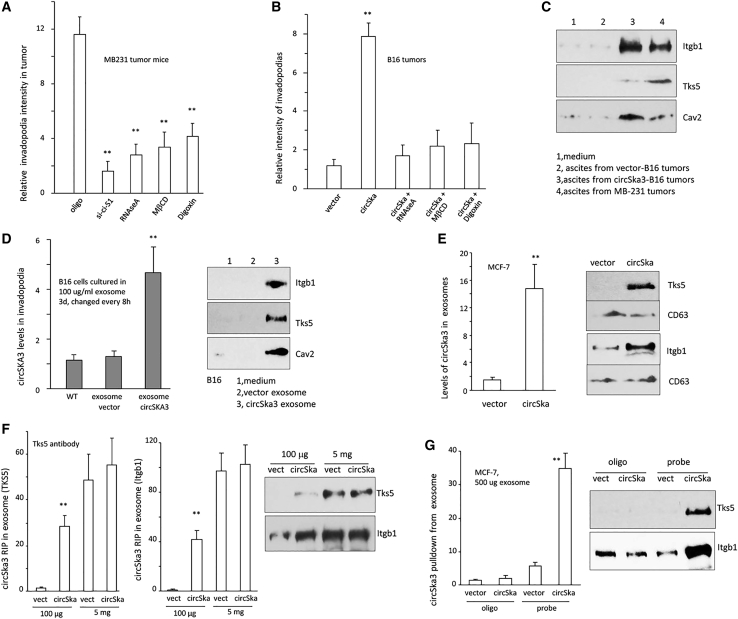Figure 6.
Integrin β1 is exosomally transmitted with circSKA3
(A) Invadopodia formation was repressed in the tumor tissues when mice were injected with circSKA3 siRNA, RNAse A, MβCD, or Digoxin (n = 6). (B) Injection with circSKA3-containing exosomes promoted invadopodia formation, which was blocked by RNAse A, Digoxin, or MβCD (n = 6). (C) MCF-7 cells were cultured with 20% ascites from mice injected with tumor cells. Integrin β1, Tks5, and Cav2 proteins were detected in the invadopodia cultured with ascites of mice injected with circSKA3-transfected B16 cells or MB-231 cells. (D) Left, B16 cells were loaded on gelatin-coated culture dishes and cultured in a basal medium with 100 μg/mL control vector- or circSKA3-packed exosomes for 3 days, followed by invadopodia collection and RNA extraction. Ascites from tumor-bearing mice injected with circSKA3-transfected B16 cells increased circSKA3 levels in invadopodia of the cultured B16 cells. (n = 4). Right, integrin β1, Tks5, and Cav2 proteins were detected in the exosomes harvested from B16 cells transfected with or without circSKA3. CD63 was enriched in the isolated exosomes from a MB-231 culture medium. (E) Exosomes isolated from cells transfected with circSKA3 expressed higher levels of Tks5 and integrin β1. (F) RIP showed that circSKA3 was precipitated from exosomes by antibodies against Tks5 (left) and integrin β1 (middle). Increased levels of these proteins were detected in the exosomes (100 μg or 5 mg protein) from cells overexpressing circSKA3 (right). (G) The circSKA3 probe pulled down higher levels of Tks5 and integrin β1 from exosomes harvested from cells transfected with circSKA3, ∗∗ p<0.01; Error bars, SD.

